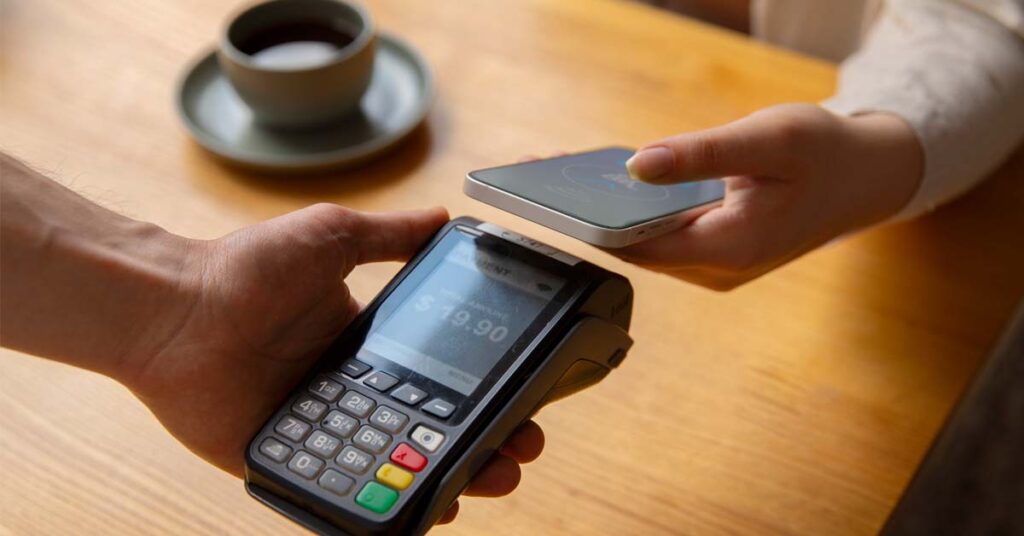ⓘ Featured image credits: Freepik
Data privacy is becoming important now more than ever. Well, it has always been important. But, as more data is becoming digitized, and we have to share a lot of information online, you need data privacy more.
Research on cloud data security indicates that 60% of the health care and government sectors are more concerned about malware. This is the number two concern amongst all the industries surveyed.
Think about this: Your company may carry the personal data of thousands of clients. The company needs to keep customers’ information private so that their identities stay protected and the company’s reputation remains good.
Also, as an individual, you have many duties to handle when it comes to your data privacy. So, the more you know how to improve your data privacy, the better you’ll protect yourself from many risks.
In short, what we imply here is that everyone (individuals and organizations) need data privacy. Apart from external threats, data security issues that should be addressed also include internal threats.
So, before we find out the simple ways to improve your data privacy, let’s first learn what data privacy is.
What is Data Privacy?
Data privacy describes how you should handle a piece of data, depending on its level of importance. Take an example when you interact with a stranger.
Most likely, you wouldn’t mind sharing with them the usual details like your name. But, there’s some information you wouldn’t dare to reveal to them. Not until you familiarize yourself better with the person.
With modern technological growth, you can compare data privacy to the critical personal information considered sensitive. This is commonly known as personally identifiable information (PII) and personal health information (PHI).
Such include things like:
- Financial details like bank account information
- Social Security numbers
- Personal medical records
For businesses, data privacy includes the PII of employees and customers. It also involves the information that allows the company to run smoothly. Such may be financial data or research and development information that shows how the company spends and invests its money.
Now, let’s find out how you can protect your data privacy.
What Are the Simple Ways to Protect Your Data Privacy?
1. Using Firewall to Secure Your Data Privacy
A firewall is a crucial data protector. Often, it helps in isolating one network from another. Firewalls can work either as standalone systems or form part of infrastructure devices like servers and routers.
Both hardware and software firewall solutions exist. Again, some firewalls work as appliances, which run as the primary device that separates two networks.
Firewalls protect data by keeping off undesirable traffic from entering an organization’s network. This helps prevent data leaking to untrusted third-party servers by hackers or malware.
Based on the organization’s firewall policy, the firewall might completely block some or all traffic. It might also verify some or all of the traffic.
It helps to know that proxy servers act both as a firewall and web filter. They provide secure, shared network connections to speed up ordinary requests.
An excellent proxy server protects users and the internal network from harmful things on the internet.
Both Individuals and organizations use proxy servers for safe and private internet browsing.
Some proxy servers will change your IP address and other identifying data that the web request contains.
That way, the destination server won’t know who made the initial request. What happens in return? Your personal data remains private. Moreover, you get to enjoy highly secreted browsing habits.
Remember that you can also restructure your proxy server to encrypt your web requests. This is important to keep snoopy eyes from reading things like your financial transactions. You can also go ahead and block the known malware sites from accessing through the proxy server.
Concerning proxy servers as firewalls, it’s necessary to note that residential proxy enables you to choose a specific location (country, state, or city). You then browse the web as if you’re a real user in the selected area.
This way, the proxies act as intermediaries to protect you from general web traffic. They act as buffers to conceal your IP address and keep your data private as you browse.
Many businesses, including eCommerce companies, government agencies, and many other highly-respected industries, use proxies all the time.
You can also benefit from using a suitable ISP proxy for private business data collection activities and requests. That way, you can collect business data or any other information from anywhere and enjoy the data privacy you need.
The most beautiful part is that the requests you make are seen and treated as those from the actual places you choose for your IP address. This makes your online business activities very effective.
2. Applying Change Management and Database Auditing
Another measure that you can use to improve your organization’s data privacy is by logging all database and file server activities. You must ensure the maintenance of your login activity for at least a year for security audits purposes.
Any account that goes beyond the maximum number of failed login attempts is automatically reported for investigation by the information security administrator. It’s critical to spot changes to the sensitive information and its associated authorization.
As an organization, using historical information to understand what data appears sensitive, how it’s being used, who’s using it, and where it’s going is necessary. It enables you to build effective and accurate data protection policies.
Most importantly, the process helps you to find out the previously unknown risks. You can also track changes in your environment and know whether they might interfere with data security.
3. Using Data Encryption
Do you know that encryption is one of the most basic yet excellent data protection practices? But, most people often overlook it.
For a data privacy guarantee, all critical data needs to be encrypted. This is essential whether the information is stored or directed to other sources or transmitted over the network or via portable devices.
If you’re using portable systems to hold any critical data, you should use encrypted disk solutions.
For the desktop systems storing critical or branded information, you need to encrypt the hard drive. This will help avoid losing important data even when there’s a breach and hard drives are missing.
Now, let’s find out below the different ways that you can encrypt your data.
First, if you want to encrypt data on your Windows system using the simplest way, you need to use the Encrypting File System (EFS) technology. Why go with EFS?
Often, when you use EFS to protect data, an unauthorized user can’t view any content on the file even though they can access the device entirely.
What happens is that when an authorized user tries to open an encrypted file, EFS will decrypt the file in the background. It will then act by providing an unencrypted copy to the application.
The authorized users will be able to see the file and even change it. EFS will also save changes clearly as encrypted data. And, if unauthorized users try to view or modify the file, they get an error indicating “Access denied.”
BitLocker is Another encryption technology from Microsoft. It complements EFS by offering additional protection for the data stored on Windows devices.
BitLocker also protects stolen or lost devices from data exposure. When you use this application, you’re sure of excellent data privacy.
Attribute-Based Encryption helps to give you excellent access control of encrypted data. By anonymizing data, you are sure of your data privacy.
Encryption involves the process of data encoding so that your secret information remains inaccessible to unauthorized users.
This process helps you protect any sensitive data or private information. Hence, you manage to boost the security of communication between your servers and the client apps.
In short, encryption means converting data to appear in the form of code or symbols. Once you convert your data, anyone who tries to access it can’t understand its content.
For example, when you want to send a confidential email, you use an encryption program to obstruct its content. By doing this, anyone who hacks the information cannot understand what’s written.
Key Takeaways
Maybe you’ve always wondered why many organizations direct a lot of time and money towards data privacy. They do this to secure their data networks from external attacks and insider threats.
When organizations don’t take such measures seriously, hackers like insider attacks can use unprotected wireless network connections to cause data exposure. This is very risky since it can cause critical downtime or data loss.
With the present technological advancement, there are many threats to data privacy. Both individuals and organizations can fall victim to private data hacking issues.
Such instances can be risky, for example, when hackers manage to access your financial information like bank details. That’s why everyone must take time to learn the simple ways to improve data privacy.
That way, you’ll know how to monitor activities in your network and ensure you are alert to individual or company data threats. Our article above should offer you the proper guidance to do this.
ⓘ LAFFAZ is not responsible for the content of external sites. Users are required to read and abide by our Terms & Conditions.










in the age of digitalization, data breach is also increasing. We all must be careful & take necessary action to save ourselves from becoming a victim of it. Thanks for the valuable info